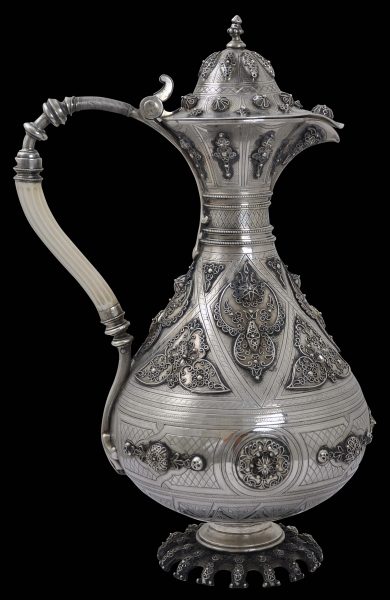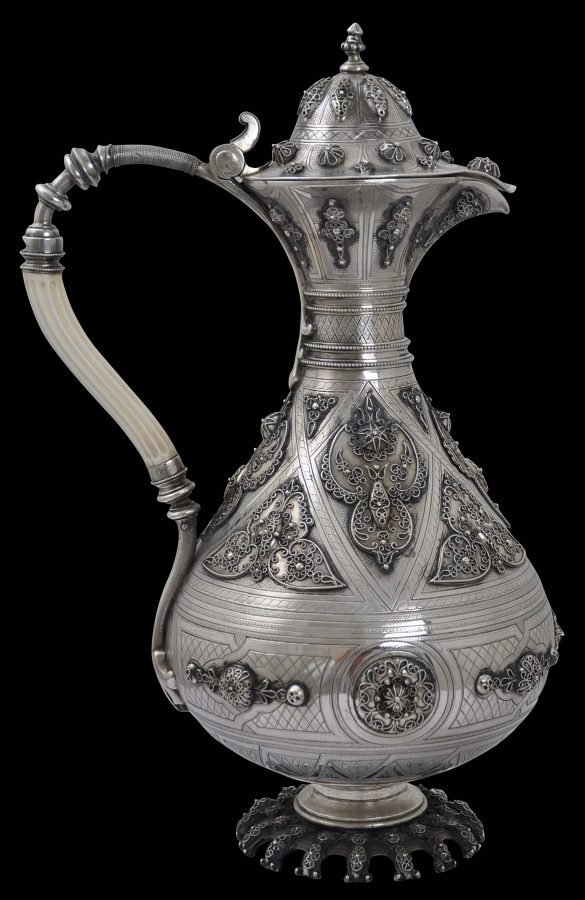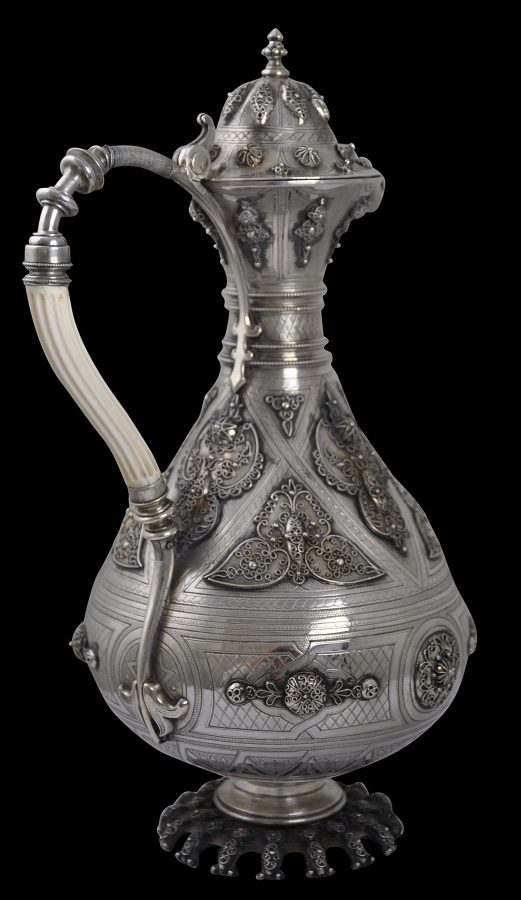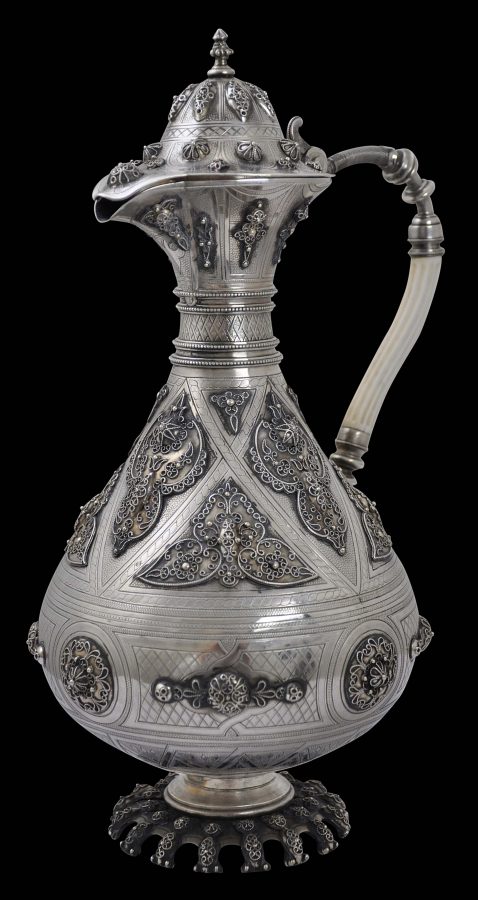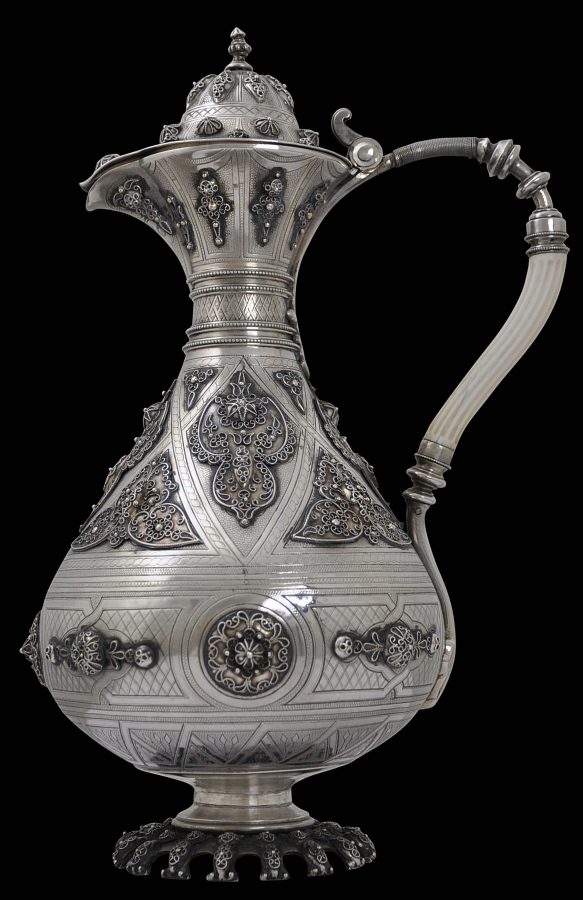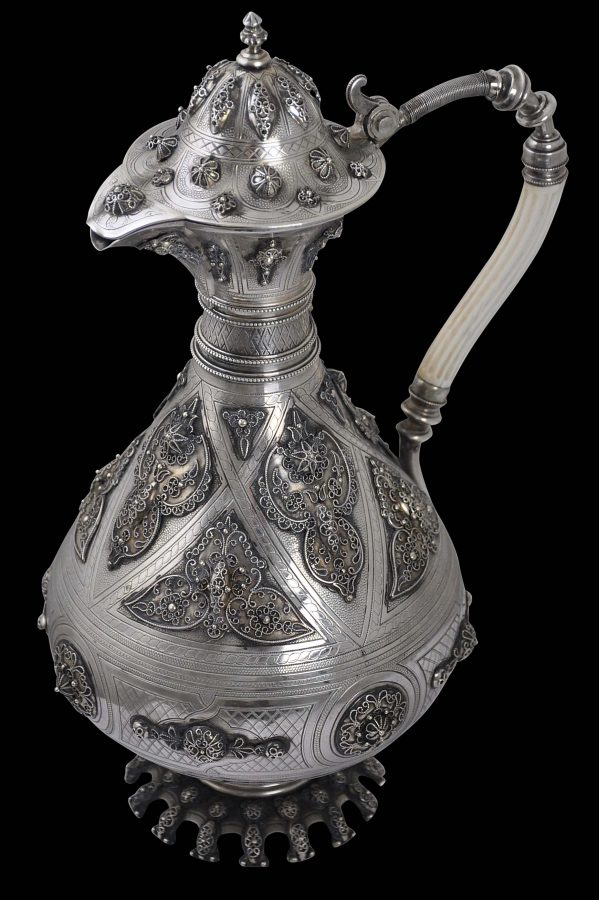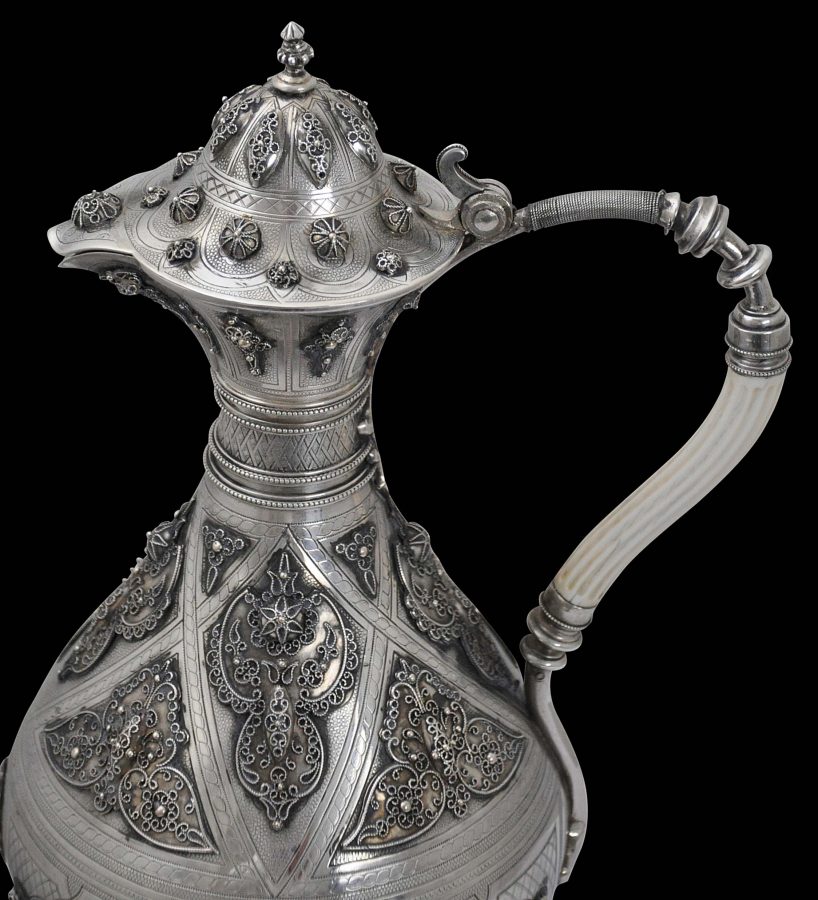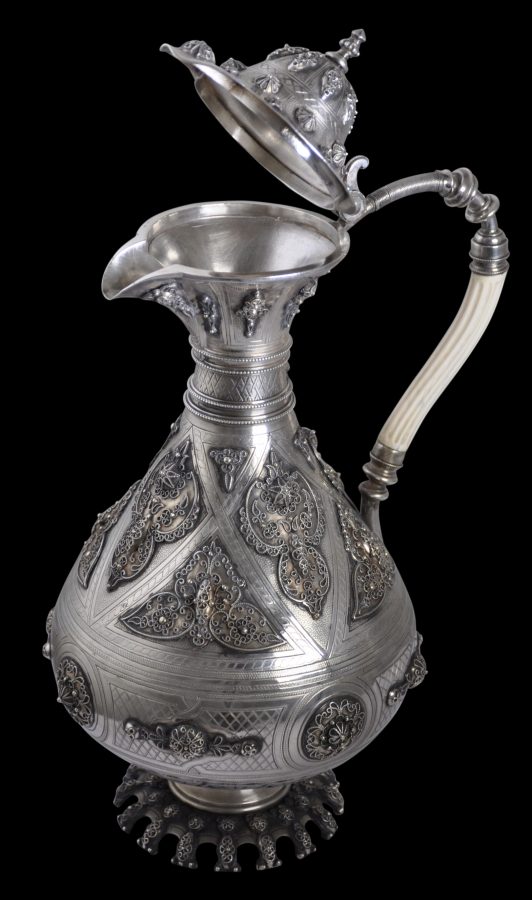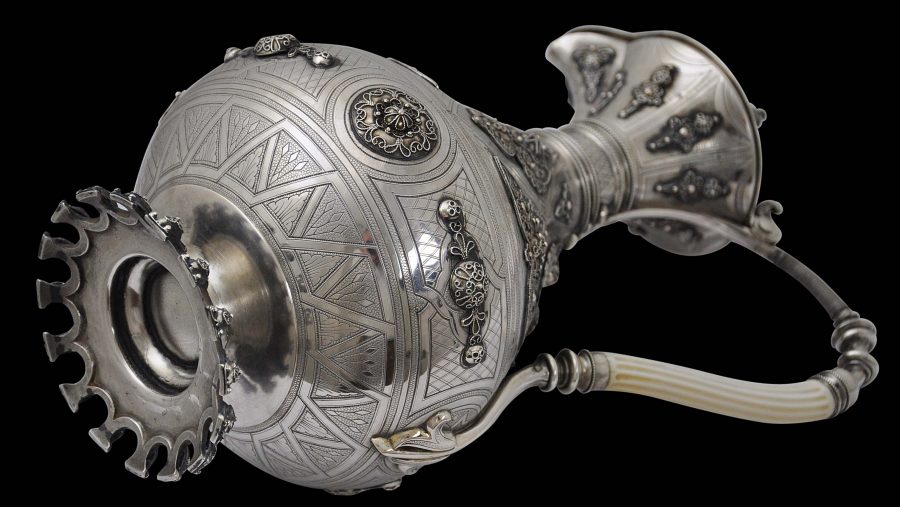This remarkable ewer is of silver with a handle that includes a segment of finely reeded ivory. It stands on a flared foot of sixteen ‘toes’ each with applied silver filigree highlights.
The body is bulbous and tapers to a narrowing neck which opens to a wide mouth with a hinged, domed lid, and a pouring lip.
The ewer is decorated all over with engraved geometric patterns and multiple applied cartouches of fine and complex silver filigree and applied granulation work.
This type of ewer is used to hold and pour ashure, a thick Turkish dessert porridge made from variants of milled wheat, rice, beans, chick peas, sugar, dried fruits, and nuts, and so is referred to as an Ashurelik. Ashure contains no animal products and traditionally was consumed following the days of fasting, coinciding with the commemoration of the Battle of Karbala, in which Hussein ibn Ali and his followers were killed. (In modern Turkey, ashure is consumed all year round now.)
Various high-quality silver ashureliks are illustrated in Askit (2000) – see p. 127 for example.
This is a spectacular piece of silverwork, far more impressive in real life than how it has photographed. It is in fine condition. There are some minor debts to some of the applied buttons (none to the body itself) but these are barely noticeable. There are no maker’s or assay marks.
References
Askit, I., The Topkapi Palace, Askit, 2000.


